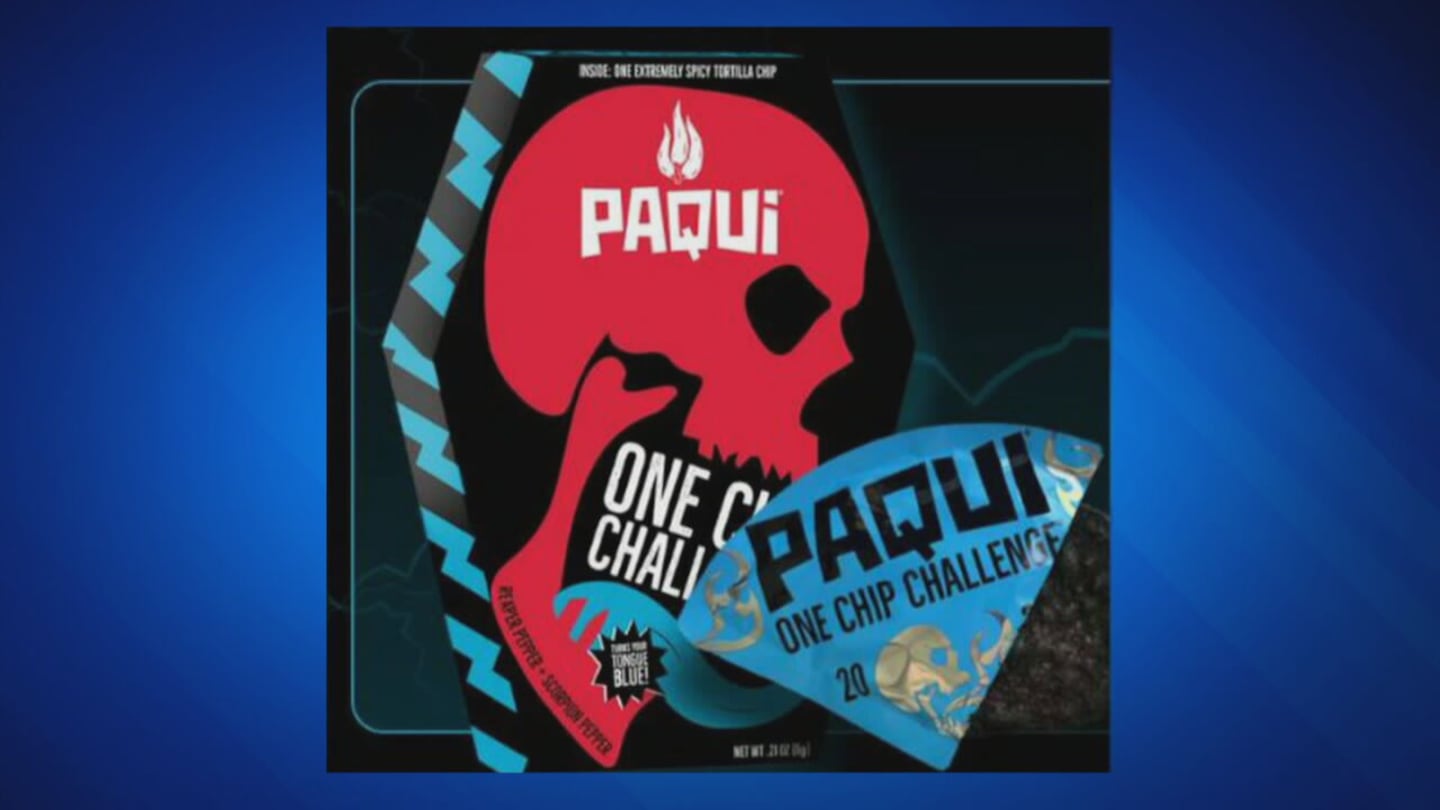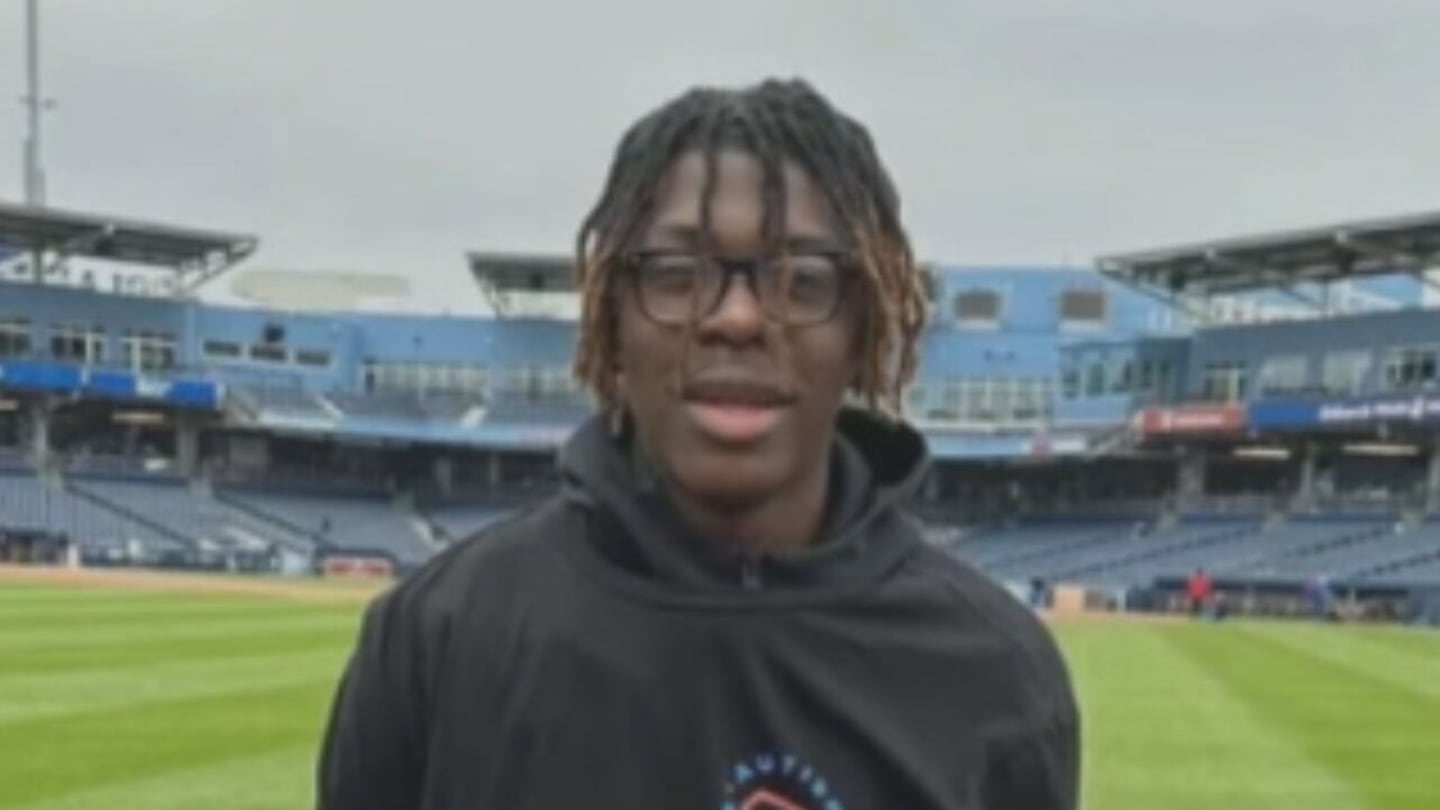BOSTON — The attorney for the family of Harris Wolobah blasted the companies involved in a viral ‘One Chip Challenge’ after filing a wrongful death lawsuit for the teen’s family on Thursday.
Attorney Doug Scheff said Harris, a Worcester teen who died after eating a spicy chip as part of a viral TikTok challenge. Defendants in the lawsuit are the tortilla chip manufacturer, Texas-based Paqui LLC; its parent company, The Hershey Co.; and Walgreens, which sold the chip, Scheff said.
“This product should never have been available to adults, let alone children,” Scheff said during a press conference on Thursday. “It should never have been put on the shelves. And what did they do? They kept pushing it and pushing it until poor Harris died.”
The high school sophomore died on Sept. 1, 2023, after eating the chip. Police who were called to his home found the teen unresponsive. He later died at a local hospital.
As Scheff spoke, Harris’ parents, Lois and Amos Wolobah, wept while sitting nearby.
“These are parents who have dedicated their entire lives to their children,” Scheff said while introducing the Wolobahs.
He said their late teenage son “was a great kid” who worked hard in school and “always tried to care for others.”
“He was an athlete in phenomenal shape,” Scheff said, adding that the teenager had a dream to one day join the NBA.
“He wanted to do it all for his family,” Scheff said.
Harris’ cause of death was listed as cardiopulmonary arrest “in the setting of recent ingestion of food substance with high capsaicin concentration.” The autopsy report also noted that the teen had an enlarged heart and a congenital heart defect.
In a statement, a Paqui spokesperson said that the viral chip challenge was “intended for adults only” and eventually the company pulled the product from store shelves.
“We were and remain deeply saddened by the death of Harris Wolobah and extend our condolences to his family and friends. Paqui’s One Chip Challenge was intended for adults only, with clear and prominent labeling highlighting that the product was not for children or anyone sensitive to spicy foods or has underlying health conditions,” the Paqui statement said.
“We saw increased reports of teens and other individuals not heeding these warnings,” Paqui said. “As a result, while the product adhered to food safety standards, out of an abundance of caution, we worked with retailers to voluntarily remove the product from shelves in September 2023 and discontinued the One Chip Challenge.”
Scheff said the chip’s packaging included images of a snake with venomous fangs wrapped around a bloody skull.
“The box itself is shaped like a coffin imagine,” Scheff said, adding that the company’s marketing described the chip as “vicious” and intended to cause pain, “a swift strike to the mouth.”
Shortly after the teen’s death, Paqui on its website showed a cartoon of a skeletal grim reaper, holding a snake, with the question: “How long can you last before you spiral out? (Before you eat or drink anything for relief).”
The company website then stated: “1 minute, Harmless. 10 minutes, Slitherer. 30 minutes, Venomous. 1 hours, Apex predator.”
Paqui also issued a warning about the chip on its website, which included, “Keep out of reach of children. Intended for adult consumption. Do not eat if you are sensitive to spicy foods, allergic to peppers, night shades or capsaicin, or are pregnant or have any medical conditions.” It also instructed people to wash their hands after touching the chip and “seek medical assistance should you experience difficulty breathing, fainting or extended nausea.”
One single 2023 One Chip Challenge chip sold for $9.99 + shipping on Amazon.com.
While the chip packaging had warnings on it, it also encouraged buyers to eat the entire chip, “wait as long as possible before drinking or eating anything” and post their reactions on social media.
Citing numerous cases of adults and children falling ill after joining the “One Chip Challenge,” Scheff said the companies who profited off of the viral challenge should have known better.
“How could they not have known? But they continued in their marketing efforts, even after all this,” Scheff said.
The attorney issued “a call to action” and asked others who consumed the chip to call his office.
“We need to get answers, and the answers have to come from the defendants,” he said.
This is a developing story. Check back for updates as more information becomes available.
Download the FREE Boston 25 News app for breaking news alerts.
Follow Boston 25 News on Facebook and Twitter. | Watch Boston 25 News NOW
©2024 Cox Media Group












